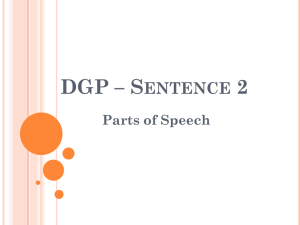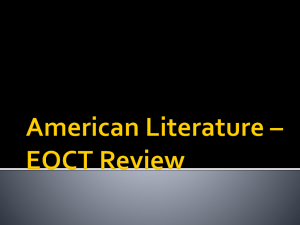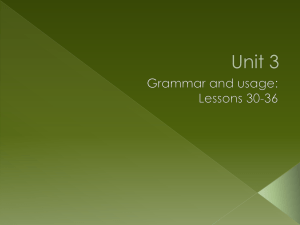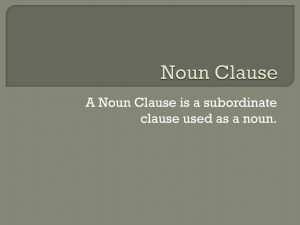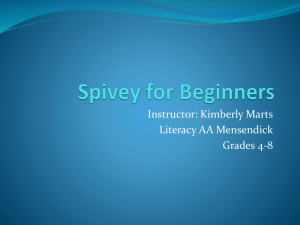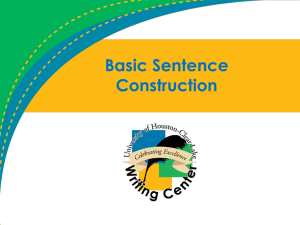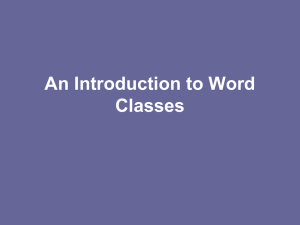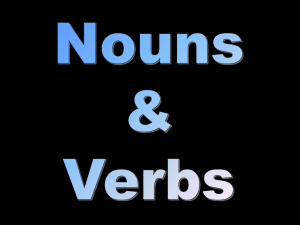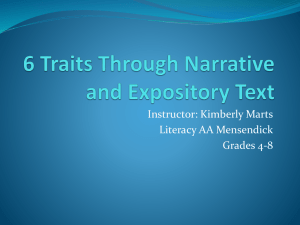Grammar_virtual_teacher
advertisement
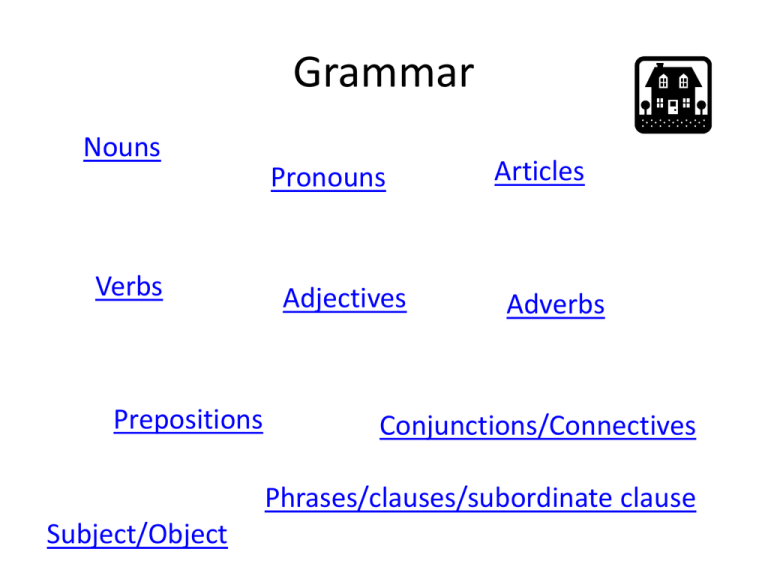
Grammar Nouns Pronouns Verbs Prepositions Adjectives Articles Adverbs Conjunctions/Connectives Phrases/clauses/subordinate clause Subject/Object Articles The three articles are “a”, “an” and “the”. Nouns Nouns are naming words. They refer to a name, place, brand or thing. The most popular noun is a common noun – these are a name of a thing have no capital letter: chair, table, tree. The other most popular noun is a proper noun – these are names of People, Places and Brands and require a capital letter: Mrs Woodward, London, Nike. There are also abstract nouns and collective nouns. An abstract noun Is a word for ideas and concepts: jealousy, boredom, happiness, honesty. A collective noun is a collection of things: pride, swarm, flock. Both these nouns do not need a capital letter – unless they start at the beginning of a sentence. A concrete noun is a noun that refers to people and things that exist Physically and can be seen, touched, smelled, heard and tasted. Pronouns Pronouns are those handy words which save us from repeating the noun. They Replace the noun: He, me, she, it, he, her, him, his, you, they, your, their, our, We, them, I, us. There is no need to use a capital letter for a pronoun – unless It starts at the beginning of a sentence. Possessive pronouns tell you who or what owns a noun. Relative pronouns introduce more information about the noun. Verbs Verbs are doing words. All main verbs have two simple tenses, the present tense and the past tense: I walk – present; I walked – past; Action verbs – running, bought, putting on, has seen. Verbs of state (states of mind)- feel, hate, wishes, Agreed, mean, belonged, is being, expecting, were tasting. Active and Passive verbs - an active verb is something you are physically doing An action – a passive verb is something you have already done (you are not doing it at the moment): The eggs were thrown – passive; The old castle is haunted by ghosts. Auxiliary Verbs – are verbs which are used together with other verbs: We are going; Lucy has grown; Can you play? The most common auxiliary verbs Are: be, have and do. Modal Verbs – are: can and will. Adjectives Adjectives describe nouns. They make the noun more interesting and build up detail: wonderful, expensive, blue, shiny, mischievious. Adverbs Adverbs describe the verb. They make the verb more interesting – top tip – They usually end in “LY”: quickly, secretly, carefully, Although, you can have adverbials; soon, perhaps, never, sometimes Prepositions Prepositions tell us when or where something happened: under, around, between, on, opposite, after, over, into, ahead and to. Phrases/Clauses and Subordinate Clause A main clause is a group of words which contain a verb and someone Doing the action (it makes sense on its own): Ann went to the bank; A complex sentences are those that contain a subordinate clause as well as a main clause; He stayed at home because he was ill. A subordinate clause is is a less important bit of a sentence which does not make sense on its own . It will be introduced by a linking word such as when, if, because or that: While you were out, I watched TV – subordinate clause is while you Were out. A phrase is a small part of a sentence, usually without a verb: Under the stairs – prepositional phrase Blue leather shoes – noun phrase Very slowly – adverbial phrase Conjunctions/Connectives Conjunctions/Connectives are words that join two parts of a sentence or clause together: but, however, therefore, not withstanding, and, so, meanwhile (and so on). Subject and Object The subject is either a noun or a pronoun and normally the subject comes before the verb in a sentence. The Object is a also a noun phrase or a pronoun: She used her old skateboard – she is the subject – skateboard is the object.


